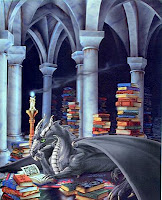I believe that every experience a writer has shapes his or her writing. Everything we do informs and influences who we are, and therefore what we write. Some of the things are minor. If I read a really good book, maybe my writing sounds like that style for awhile. If I find something incredibly unjust, I get up on my soapbox and include that theme in a story. Writers are like sponges, soaking up what is all around them, and then wringing it out onto a page. We mimic real life so that it feels real when it’s being read, and the best way to do that is take what happens in our lives and re-purpose it for our writing (although this isn’t always a conscious process).
Then there are profound life events that can forever change the way we think and feel, which can drastically alter our writing. Marriage. Children. Divorce. Death. These experiences dig deep trenches within us which fill with pools of emotion. From these pools we have an even greater depth to pull from when we write.
When my Mom died after struggling with breast cancer on and off for almost a decade, I was profoundly changed as a person. My mom was the most important person in my life. There really are no words to describe what it was like to watch her die for years, and then lose her before I was even 30 years old. I wrote an entire novel for National Novel Writing Month in November trying to find the words, and they still seem inadequate.


